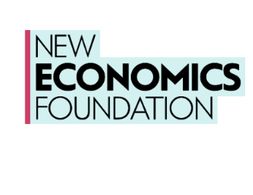717 results
In this course you'll learn about the tools used by scientists to understand complex systems. The topics you'll learn about include dynamics, chaos, fractals, information theory, self-organization, agent-based modeling, and networks.
Some economic events are so major and unsettling that they “change everything.” Such is the case with the financial crisis that started in the summer of 2007 and is still a drag on the world economy. Yet enough time has now elapsed for economists to consider questions that run deeper than the usual focus on the immediate causes and consequences of the crisis.
The policy briefing provides a data-rich overview over the budgets planned for public services in the UK and their connection to inflation expectations. It highlights the fact that inflation might lead to "invisible" cuts to public sector budgets.
The concern of this book is how to model time series statistically and there is emphasized the practical, applied aspects of statistical time series modeling. The author aims to provide methods that may be used to understand and analyze time series that accur in the “real world” that researchers face.
A previously unpublished collection of Rodney's essays on Marxism, spanning his engagement with of Black Power, Ujamaa Villages, and the everyday people who put an end to a colonial era
The most influential and controversial economist of the twentieth century, John Maynard Keynes was the leading founder of modern macroeconomics, and was also an important historical figure as a critic of the Versailles Peace Treaty after World War I and an architect of the Bretton Woods international monetary system after World War II.
The climate crisis is not primarily a problem of ‘believing science’ or individual ‘carbon footprints’ – it is a class problem rooted in who owns, controls and profits from material production. As such, it will take a class struggle to solve. In this ground breaking class analysis, Matthew T. Huber argues that the carbon-intensive capitalist class must be confronted for producing climate change.
Entretien avec Sylvie Morel, économiste et professeure titulaire au Département des relations industrielles de l’université Laval, à Québec, où elle est arrivée en 1996. Ses enseignements et ses recherches portent sur les politiques publiques de l’emploi, la sécurité sociale et la théorie économique (l’économie institutionnaliste de John R. Commons et l’économie féministe). Ses travaux sont menés dans une perspective de genre. Elle a collaboré à plusieurs réseaux de recherche féministes, aux fins, notamment, de l’élaboration de formations sur les théories économiques pour les groupes de femmes. Elle est membre du Réseau québécois en études féministes (RéQEF) ainsi que chercheuse associée à la Chaire Claire-Bonenfant – Femmes, Savoirs et Sociétés. Signataire du Manifeste pour un Québec solidaire (2005), elle a co-fondé le site Économie autrement – dédié à la promotion de l’économie hétérodoxe – et y a collaboré pendant 7 ans. Elle a aussi siégé quatre ans au Comité de direction du Centre d’étude sur la pauvreté et l’exclusion (CEPE), rattaché au ministère de l’Emploi et de la Solidarité sociale (MESS).
Présentation générale des enjeux et objets d'étude d'une approche féministe de l'économie.
Nancy Fraser et Elsa Dorlin, philosophes et militantes des Gender Studies, échangent et débattent autour de "Un féminisme pour les 99%. Un manifeste".
Dans cet entretien mené pour la revue Regards Croisés sur l'Économie, Christine Delphy donne des clés pour analyser le travail gratuit des femmes, rendu invisible dans la sphère économique. Le rôle des politiques publiques dans la perpétuation de cette organisation économique est également mis en lumière, ainsi que la difficulté pour les sciences économiques à capturer cette dimension genrée du travail.
La prostitution est-elle la pire des violences patriarcales exercée sur le corps des femmes, ou un travail pas pire qu'un autre ? Pour protéger les femmes, faut-il l’abolir ou donner plus de droits à celles qui l'exercent ? Ces deux positions antagonistes divisent profondément le mouvement féministe.
In Colonial Debts Rocío Zambrana develops the concept of neoliberal coloniality in light of Puerto Rico's debt crisis. Drawing on decolonial thought and praxis, Zambrana shows how debt functions as an apparatus of predation that transforms how neoliberalism operates.
Nous utilisons des cookies sur notre site Web. Cliquez sur Accepter pour nous aider à améliorer constamment Exploring Economics !













